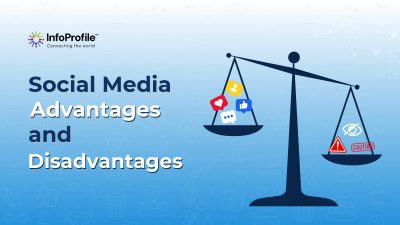In the early days of social networking, digital presence was about connection. You created a profile, added contacts, shared updates, and engaged with others who shared your interests or aspirations. But over time, something changed.
Today, being online often feels more like a performance than a conversation. Every post is calculated, every interaction measured, every moment curated for visibility. Whether you’re a student building your first portfolio, a professional navigating a career pivot, or a creator growing a personal brand, your presence online likely feels fragmented and exhausting.
So, it’s worth asking: is social networking still helping you grow, or just keeping you visible?
The Rise of Performative Presence
Our digital lives are stretched thin across multiple platforms, each one asking us to present a different version of ourselves. One app showcases your creative work, another highlights your experience, a third is for networking, and a fourth is purely social. And yet, none of them offer a unified, evolving picture of who you are.
Instead of building meaningful connections, we are encouraged to optimize for visibility, likes, shares, follows, views. But these metrics, while quantifiable, often lack real-world relevance. They can’t measure growth. They rarely convert into opportunities. And they don’t capture the full spectrum of who we are.
If your digital profile feels static or outdated, you’re not alone. Many of us are represented online by snapshots frozen in time—old bios, outdated links, and irrelevant content. Meanwhile, our skills, goals, and experiences continue to evolve offline.
The Disconnect in Today’s Digital Identity
The core issue with modern social networking isn’t inactivity, it’s fragmentation.
Each platform captures a piece of your identity, but none reflect the whole. You may have a well-curated LinkedIn, an active Instagram, a thoughtful Twitter feed, or a portfolio site, but these are silos, not systems. They were not designed to work together or evolve alongside you. They were designed for content, not context.
This disjointedness creates a gap between who we are and how we appear online. It limits the potential for meaningful discovery, professional credibility, and authentic storytelling. In an age where first impressions are often digital, this gap matters more than ever.
So, ask yourself: is your current online identity working for you or against you?
Why Traditional Social Networking Platforms No Longer Suffice
Most social platforms position themselves as tools for connection. But their core design is built around engagement. The more time you spend scrolling, the more value they generate, for themselves, not necessarily for you.
This model prioritizes entertainment over intention. It rewards consistency over authenticity. And while these platforms may provide exposure, they often lack the depth required for real professional advancement.
Think back to your last professional breakthrough:
Did it come from a trending video?
A viral tweet?
A popular soundbite?
Probably not.
Professionals need more than visibility, they need platforms that help them express value, track growth, and build trust. The metrics that matter today are not likes or followers, but clarity, credibility, and alignment with opportunity.
Yet most social networking tools are still built on static profiles and outdated assumptions. They don’t adapt to reflect career shifts, personal development, or interdisciplinary identities. And in today’s world, where people are pivoting faster than ever, that rigidity is a major limitation.
What Should Modern Social Networking Look Like?
If social networking is to serve us meaningfully, it must move beyond the broadcast model. It should be designed to:
- Reflect real identity: not just where you’ve been, but where you’re going.
- Support multidimensional professionals: people who wear many hats and are constantly evolving.
- Bridge digital and human connection: by focusing less on metrics and more on meaning.
- Encourage discovery over distraction: helping others understand your work, not just consume it.
The future of digital identity demands platforms that are not merely social, but intentional, integrated, and dynamic. Professionals don’t need another place to post; they need a space to present, connect, and grow.
Towards Smarter, Simpler Social Networking
This is where platforms like InfoProfile come in, designed with the evolving professional in mind. InfoProfile is not another social feed or content stream; it’s a smart digital profile built to bring your identity, work, and ambitions into one place.
It helps you showcase who you are, what you do, and where you’re headed—without the noise.
In a world where social networking is increasingly defined by trends and algorithms, InfoProfile shifts the focus back to clarity, control, and connection.
Because ultimately, your digital presence should do more than just exist:
It should work for you.
It should grow with you.
And above all, it should reflect the real you.



